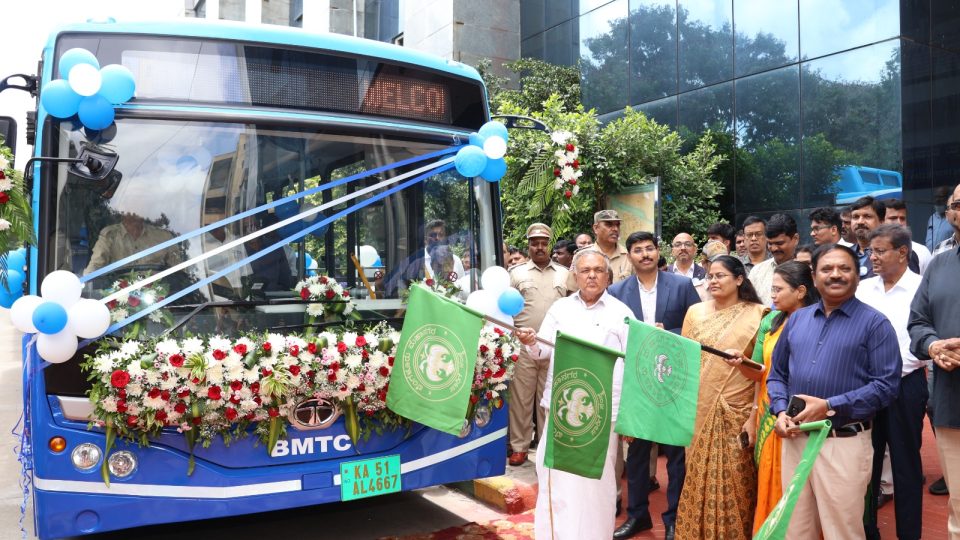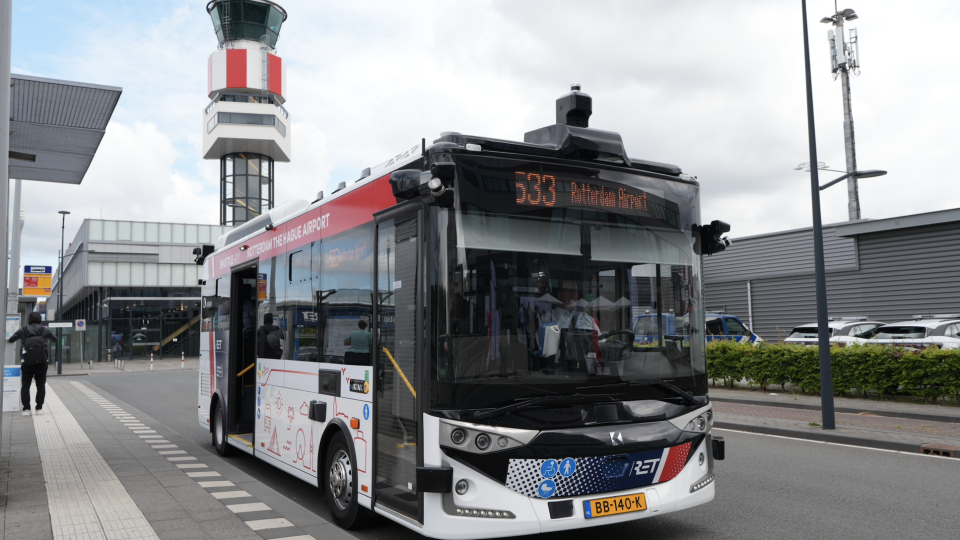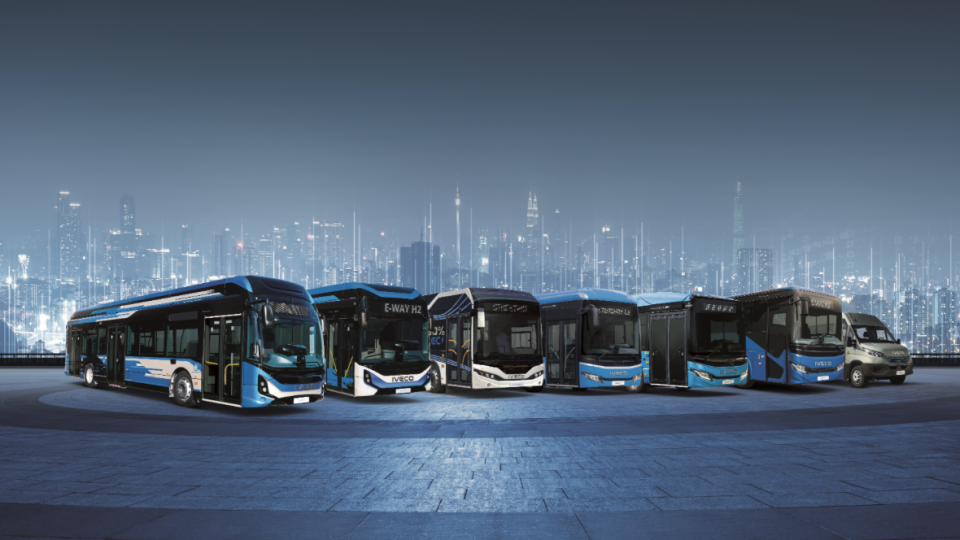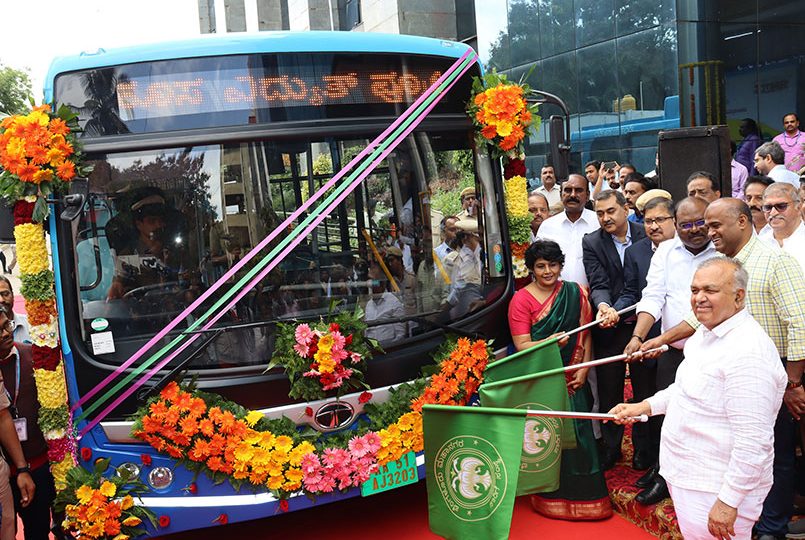The first biogas coaches (from Iveco and Scania) to be launched in Europe by Flixbus.
The first long distance coaches running on biogas will operate the Stockholm-Oslo and the Amsterdam-Brussels routes. In a collaboration between Scania and Iveco, mobility provider Flixbus and gas supplier Gasum, the gas-powered coaches are expected to reduce climate impact and contribute to a fossil-free transport between the Nordic cities. Already today, according to Scania’s figures, 17 […]
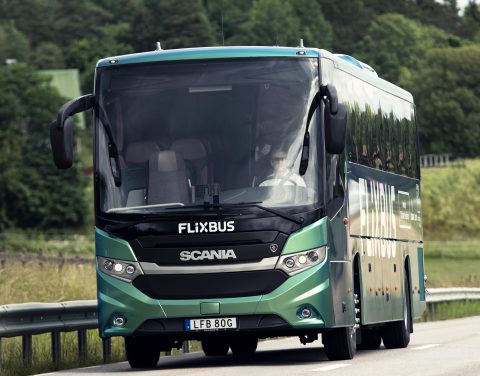
The first long distance coaches running on biogas will operate the Stockholm-Oslo and the Amsterdam-Brussels routes. In a collaboration between Scania and Iveco, mobility provider Flixbus and gas supplier Gasum, the gas-powered coaches are expected to reduce climate impact and contribute to a fossil-free transport between the Nordic cities.
Already today, according to Scania’s figures, 17 percent of Europe’s gas grid is biogas, and its rising rapidly, actively contributing to CO2 emission cuts. In Sweden’s vehicle gas grid the biogas share is a staggering 95%.
A Scania-made biogas coach for Flixbus
In recent years, technology has been developed to cool the biogas to around minus 160 degrees Celsius so that it becomes liquid and thus more energy-dense. This opens up the possibility of using the gas for, among other things, heavy transport, both by land and by sea. Availability of biogas will improve quickly throughout Europe, especially as the EU decided to make fuelling points available along main European road networks (TEN-T).
“As the first long distance coach powered by biogas, this is probably the most sustainable coach solution today,” says Johan Ekberg, Head of Scania´s Customer Unit.
The benefits of liquid biogas are many, Scania strengthens: «it`s fossil-free, renewable, locally produced and reduces emissions. By switching to locally produced liquid biogas as fuel in long-distance trucks or buses, operators reduce both their own and their customers’ climate impact by more than 90 percent. Air quality in general is also positively affected by reduced emissions of particles and nitrogen oxides (NOx), and the quieter vehicles benefits both drivers and passengers, and the society at large».
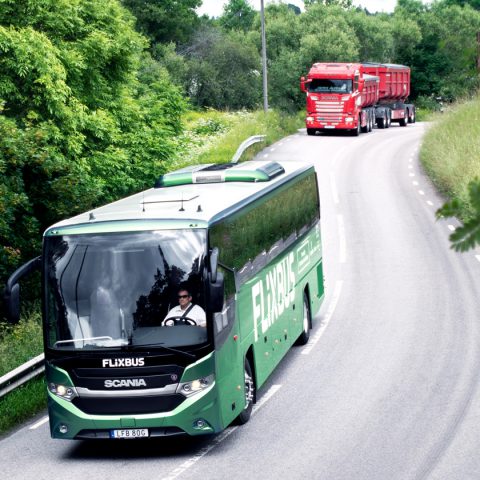
“Biogas is not only the fuel with the lowest CO2 emissions – it also solves local waste problems, creates local jobs and brings carbon and nutrients back to the soil. It is the Swiss Army Knife of circular economy,” says Jonas Strömberg, Sustainability Director at Scania.
“Biogas will be one of the key tools for decarbonisation of heavy duty transport – especially for long distance operations like intercity and long-haulage. Half of Europe’s heavy duty gas fleet could be powered by biogas in 2025,” Jonas Strömberg concludes.
Iveco Crossway Natural Power for Flixbus
The second gas-powered coach to be run by Flixbus has been commissioned to Iveco and is a Crossway Natural Gas model. It’ll be operating between Amsterdam and Brussels.
The model chosen by FlixBus operator is 13 meters long. With a total capacity of 1,260 litres (four 315-liter tanks), the vehicle has a range of minimum 600 km in long-distance missions. It’s equipped with the latest-generation Cursor 9 CNG engine which delivers 360 hp or 265 kW.
The coach assigned to the FlixBus biogas mission is joining the fleet of Belgium transporter Coach Partner. The operation is scheduled to cover daily and twice per day the round trip Brussels – Amsterdam – Brussels of 415 km each, and over a three-year period.
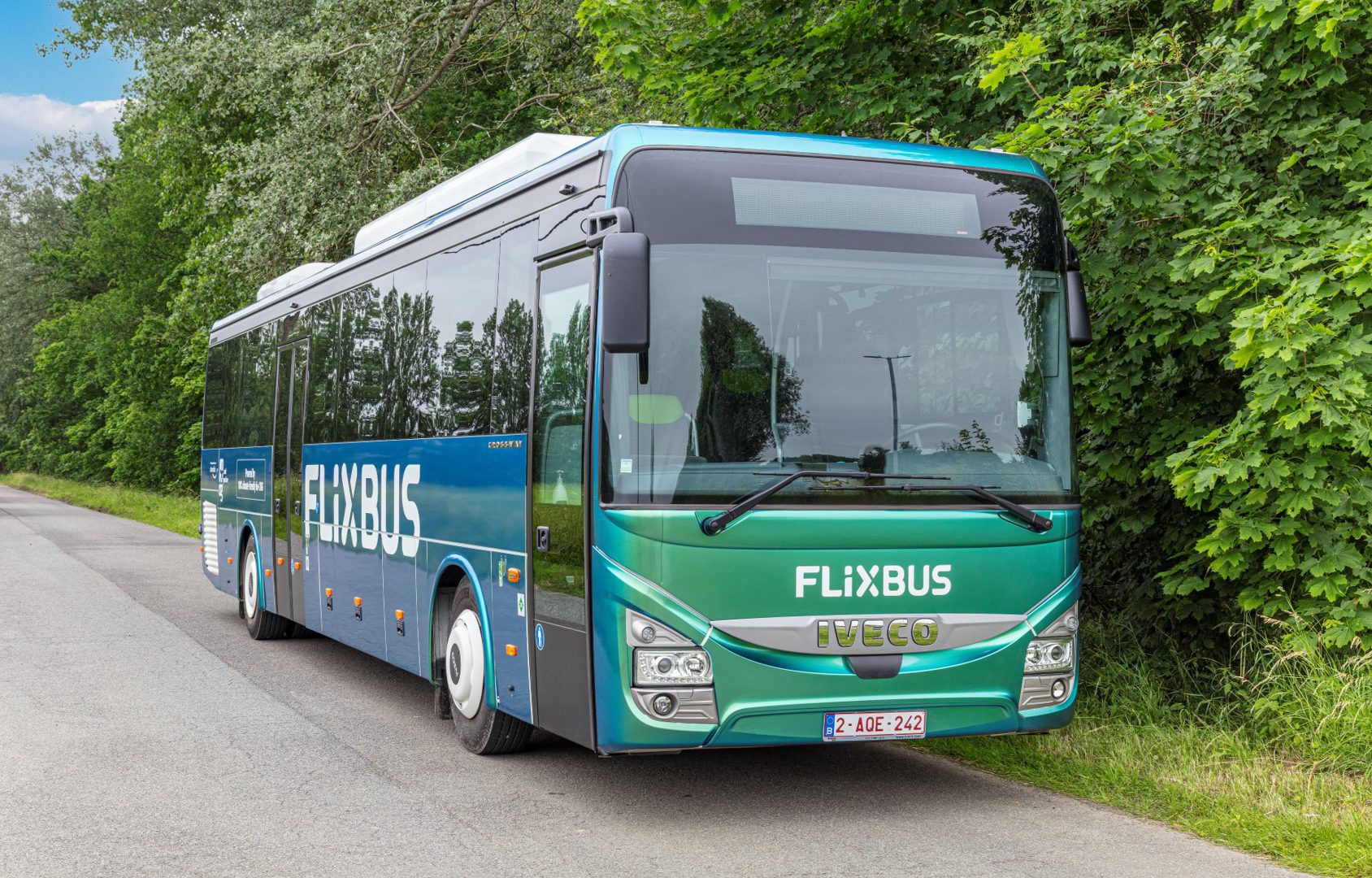
The Crossway CNG, manufacturer says, «is fully compatible with energy transition projects. It offers high performance in terms of pollutant and sound emissions reduction. With natural gas, fine particle emissions levels are reduced to nearly zero, and nitrogen oxide emissions are reduced by more than one third. The noise level is also reduced by half, offering exceptional operating silence for the driver and passengers. Natural gas vehicles are therefore the only proven, affordable fossil- fuel-free solution equipped to meet today’s and tomorrow’s mobility challenges».
The Crossway CNG also helps preserving natural resources, as it is 100% compatible with biomethane, produced from organic waste. OrangeGas, supplier of the biomethane for the Flixbus operation, is partnering with Amsterdam municipality which is producing biogas from municipal sewage sludge. The biogas is purified to reach quality to be injected in the Dutch gas grid. The Crossway CNG fuelled with biogas allows to reduce significantly CO2-emissions. Atmosfair, the climate-NGO Flix partner for climate strategy and CO2 off-setting, indicates that the CO2 reduction thanks to biomethane is of 75% compared to diesel operations on the routes.
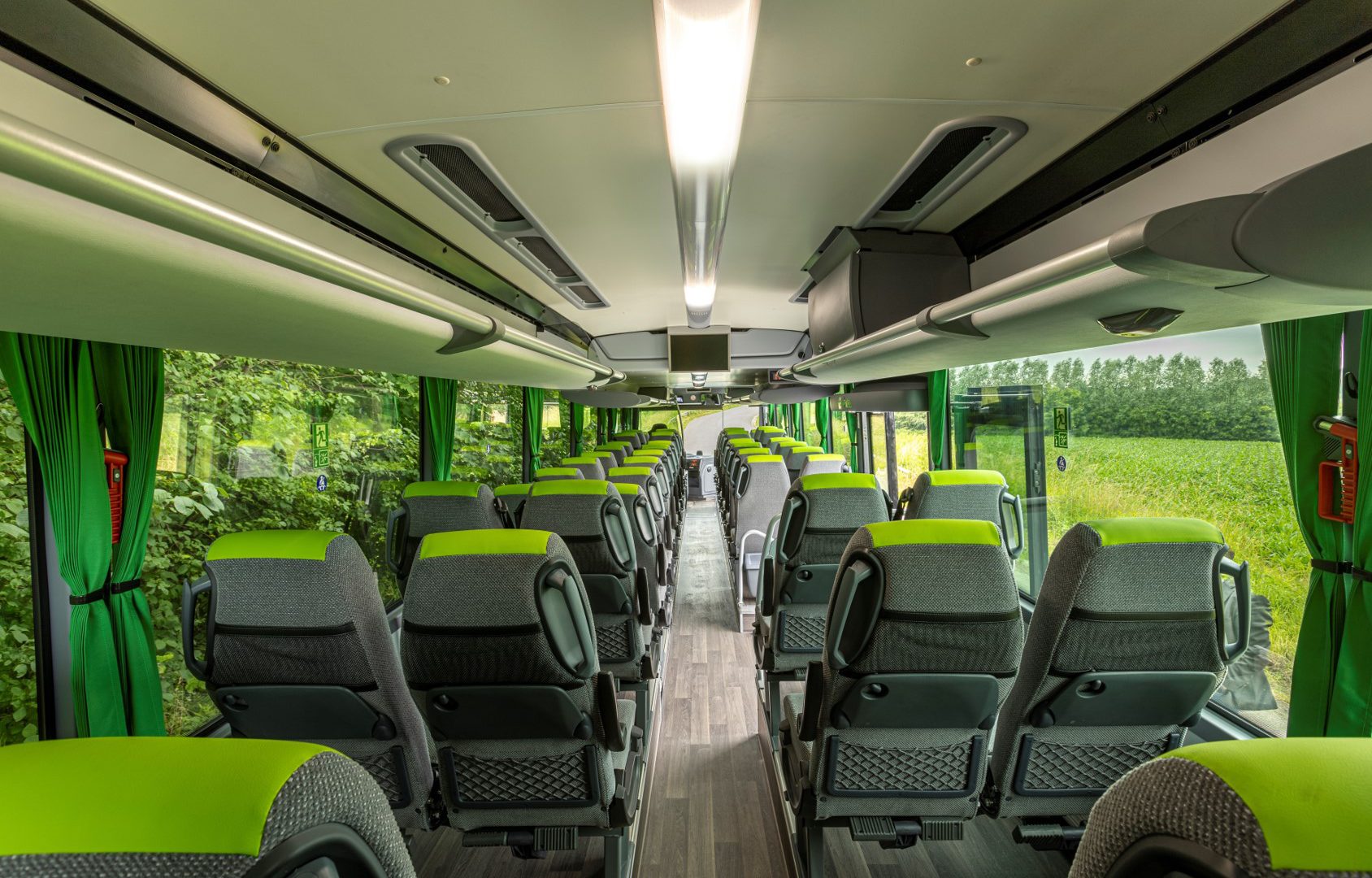
Focus on the Iveco Crossway Natural Power for Flixbus
Fully accessible for every passenger due to its front and middle double doors (1,200 mm), the Crossway CNG also offers a hydraulic ramp, a space opposite the middle door for one wheelchair and a 5.1 m3 volume of luggage compartment.
On board, the spacious interior has a minimum two meters height and features hand luggage racks. It provides excellent travel conditions and comfort for 44 seated passengers who can benefit of seats with table on rear side of the backrest, magazine net, luggage space, 2 LCD monitors 19″, toilette, air condition. USB ports make it possible for passengers to recharge their mobile phones, tablets, MP4 players.
Flixbus has chosen to fit this Crossway CNG with the Intellibus telematics offer, that provides a complete pack of Digital services, part of the IVECO ON offering.
The Intellibus fleet management system, also known as ” Fleetweb”, is an essential asset for the operator in its fleet management. Indeed, this key tool for real-time data collection also allows online storage, for constant monitoring, as well as optimization of operations and daily maintenance of vehicles.
Stéphane Espinasse, Head of the IVECO BUS Brand, commented: “We are extremely proud that FlixBus elected the Crossway bio-CNG to launch their first international biogas line. It’s a perfect example of a unique proven and mature technology to drastically reduce CO2 emissions for this type of mission. This choice acknowledges IVECO BUS leadership and expertise and confirms that we are a partner of reference in this field “.




